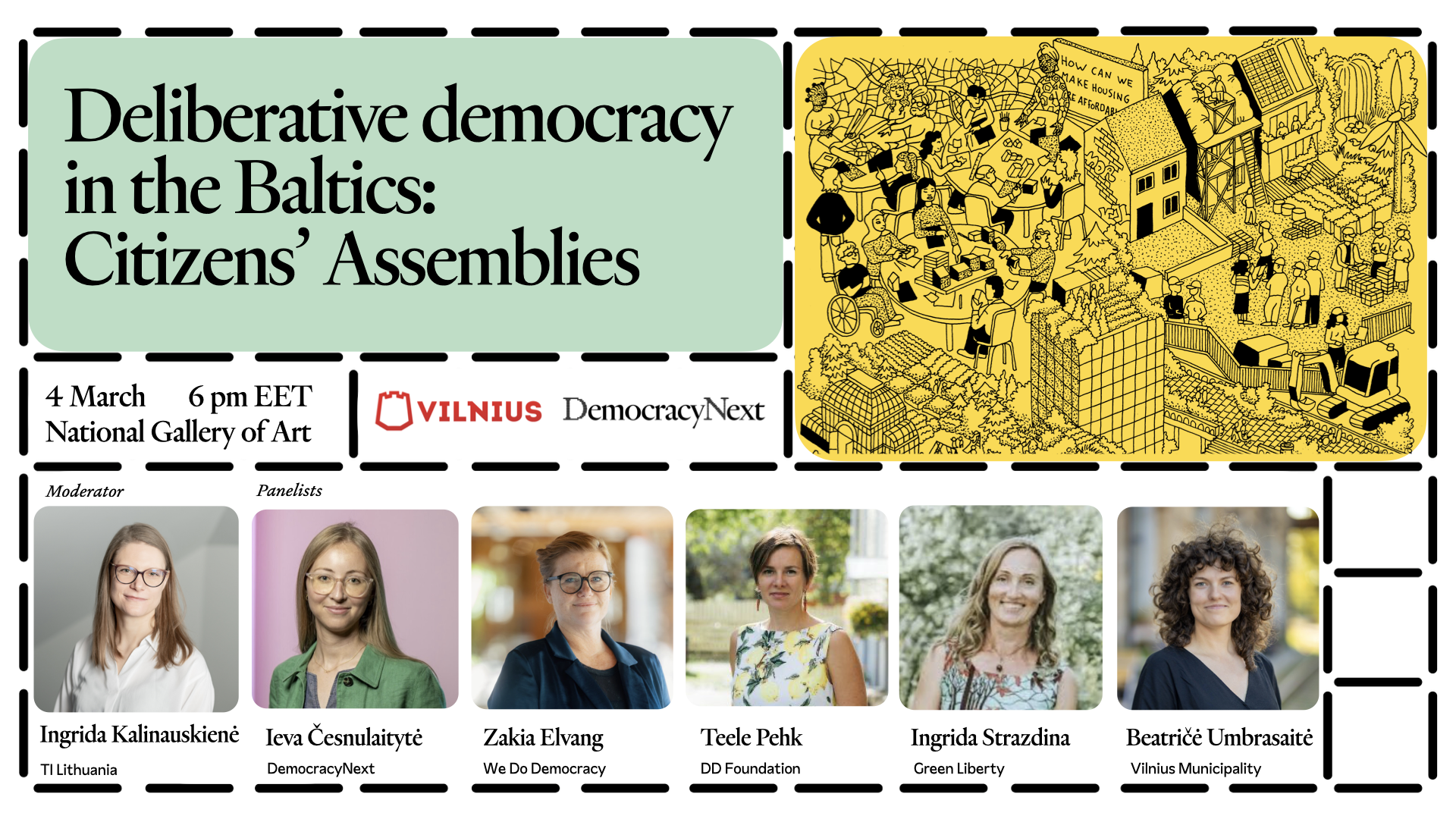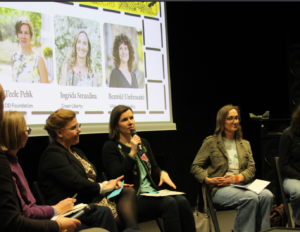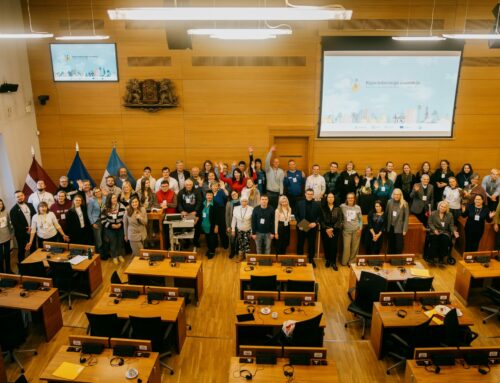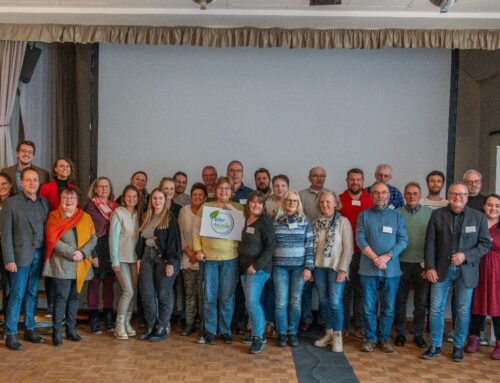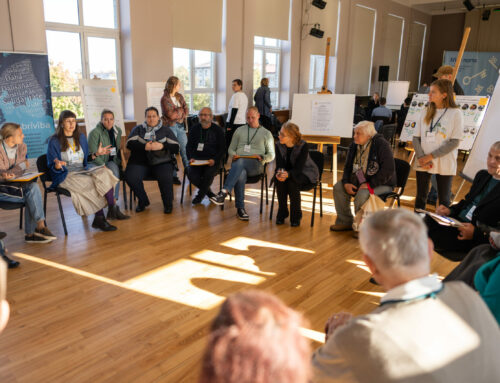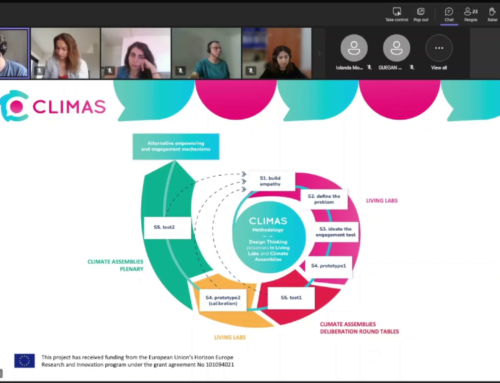As Lithuania prepares for its first-ever citizens’ assembly in Vilnius, the city public event “Deliberative Democracy in the Baltics: Citizens’ assemblies” brought together leading voices from across the Baltic region and Denmark to explore the potential of deliberative democracy.
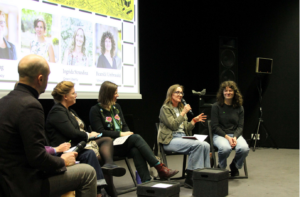
The event took place on March 4th 2025 at the National Gallery of Art in Vilnius.
In recent years, Central and Eastern Europe has witnessed a growing “deliberative wave,” with more than 40 citizens’ assemblies taking place across the region since 2016. In citizens’ assemblies representative groups of randomly selected citizens learn, deliberate, and make recommendations on key policy issues. Such deliberative processes have been gaining momentum worldwide as a response to political polarisation, declining trust in institutions, and complex policy challenges. From climate action to urban planning, these assemblies have provided governments with informed, consensus- based recommendations while giving citizens a greater say in shaping public policy. In Scandinavia, Denmark has been at the forefront of deliberative democracy, with a strong tradition of citizen participation in decision-making. With Latvia’s first climate assembly held in Riga and Estonia experimenting with deliberative processes over the past decade, Lithuania now joins this movement with its upcoming Vilnius Citizens’ Assembly in 2025.
What can Lithuania learn from these experiences? How can citizens’ assemblies strengthen democracy in the region? And what role can they play in addressing growing authoritarian pressures, societal divisions, and political disengagement?
Event summary
More than fifty (50) participants joined the event, which brought together Teele Pehk from DD Foundation in Estonia, Ingrida Strazdina from the Latvian NGO Green Liberty, advisor to Vilnius’ Chief Architect, Beatričė Umbrasaitė and international leaders in the field of deliberative democracy, Zakia Elvang from Denmark and senior advisor to DemocracyNext, Ieva Česnulaitytė from Lithuania. It was moderated by Ingrida Kalinauskienė, CEO of Transparency International Lithuania.
The panel discussion aimed to:
● Explain what citizen assemblies are: focusing on aspects of sortition and deliberation.
● Discuss how citizen assemblies can help local governments, what questions they can help address.
● Provide context how assemblies have been used in Central and Eastern Europe.
● Share first details about the upcoming Vilnius citizens assembly.
● Discuss the need for dialogue that brings different perspectives together instead of deepening the polarisation and radicalisation given the current state of democracies around the world.
During the final part of the panel participants could benefit of a Q&A sessions and closing remarks followed. Overall, there was a tangible enthusiasm about the Vilnius upcoming Assembly, seeing it as a remarkable opportunity to bring citizen participation at the core of decision making processes related to climate policies of European cities, regions and countries.
Panelists
1) Zakia Elvang (Denmark) – We Do Democracy
Zakia Elvang is the founder of and partner in the Danish consulting agency, We Do Democracy and leading the NGO and democracy innovation house in Copenhagen – Demokrati Garage. Zakia is one of the main people behind the growing Danish deliberative movement also in the role of moderating and leading multiple citizens’ assemblies. She has been the initiator of numerous democratic initiatives like the democracy fitness programme and the platform for democracy festivals in Europe. Zakia is one of the founders of the Latvian democracy festival and is helping democracy festival organisers from all over the world build their own festivals.
2) Ieva Česnulaitytė (Lithuania) – DemocracyNext
Ieva Česnulaitytė is a senior advisor at DemocracyNext, an international nonprofit, nonpartisan research and action institute. with a mission to build new democratic institutions for the next democratic paradigm of citizen participation and deliberation. Previously, she was a policy analyst at the OECD, working on innovative citizen participation, where she co-authored several flagship reports, including Catching the Deliberative Wave which analyses more than 700 examples of assemblies across the world. Ieva was a 2023-2024 Europe’s Futures Fellow at the Institute for Human Sciences (IWM) in Vienna, where she researched citizen deliberation as a democratic response to authoritarianism in Central and Eastern Europe. She advises on the design, evaluation and implementation of the Vilnius Citizens’ Assembly that will take place in 2025.
3) Teele Pehk (Estonia) – DD Foundation
Teele Pehk is a deliberative democracy artist at the DD Center for Democracy (based in Tartu, Estonia). She has introduced climate assemblies in Estonia to enrich decision making around the environmental challenges of today. With three deliberative mini-publics in recent four years, Teele, along with her team, tries to integrate deliberative democracy into the ecosystem of an open society. She is an experienced open governance advocate who has more than 15 years of experience from civil society and public sector. She is an active member in the global Open Government Partnership, Democracy R&D network as well as the Knowledge Network on Climate Assemblies (KNOCA).
4) Ingrida Strazdina (Latvia) – Green Liberty
Ingrida is part of the NGO Green liberty, working in the climate justice and citizen participation field. She is the organiser of the first citizens’ assembly in Latvia – the Riga Climate Assembly that took place late 2024.
5) Beatričė Umbrasaitė (Lithuania) – Vilnius Municipality
Beatrice is an advisor to the Vilnius chief architect. Her area of expertise is citizen engagement and communication. She is one of co-authors of the guide for municipalities on how to involve citizens in public space design projects. Additionally, she is a placemaker and is co-running an urban garden in one of the Vilnius communities.
Author: Ingrida Strazdina, Zaļā brīvība-Green Liberty
The CLIMAS Project has received funding from European Union’s Horizon Europe under Grant Agreement N° 101094021. Follow CLIMAS on LinkedIn, Instagram and X, or subscribe to the newsletter to stay updated with the latest activities!
